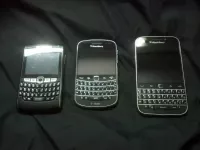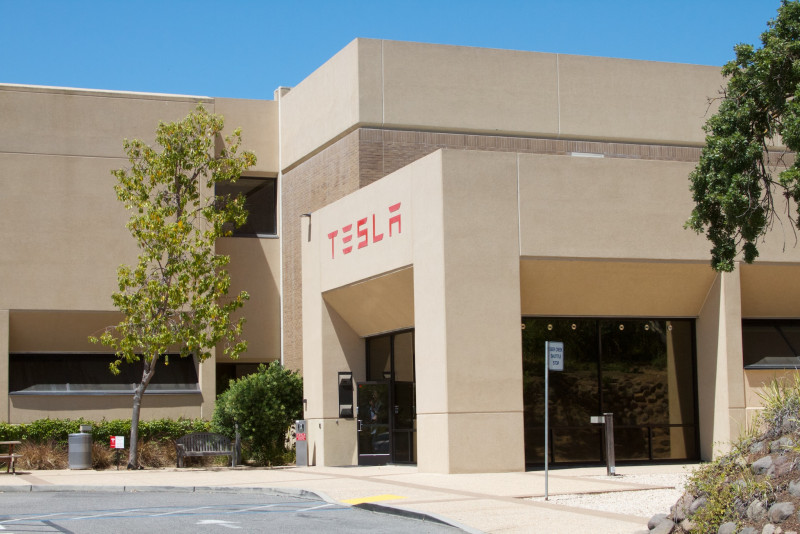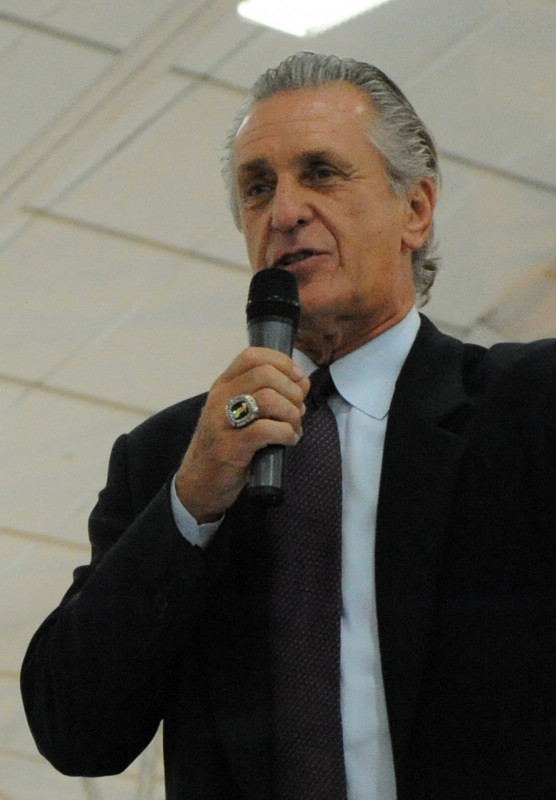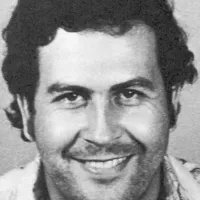Volkswagen is a German automobile manufacturer founded in 1937, headquartered in Wolfsburg, Germany. Initially established by The German Labour Front, its revival after World War II, largely thanks to Ivan Hirst, transformed it into a global brand. Best known for the iconic Beetle, Volkswagen is the flagship marque of the Volkswagen Group. The Volkswagen Group achieved status as the world's largest automotive manufacturer by global sales in 2016 and 2017.
1925: Hanomag Mass Produces the 2/10 PS "Kommissbrot"
From 1925 to 1928, the company Hanomag mass-produced the 2/10 PS "Kommissbrot", a small, cheap rear-engined car.
1931: Ferdinand Porsche Founded Porsche
In 1931, Ferdinand Porsche, the original Volkswagen designer, founded the sports car manufacturer Porsche in Zuffenhausen.
1933: Porsche Builds the "Volksauto"
In 1933, Ferdinand Porsche built a car named the "Volksauto" from the ground up, incorporating popular ideas and his own innovations such as an air-cooled rear engine and torsion bar suspension.
1934: Hitler Orders Production of a Basic Vehicle
In 1934, Adolf Hitler became involved and ordered the production of a basic "People's Car" capable of transporting two adults and three children at 100 km/h.
1936: German Car Production Set
The post-war industrial plans for Germany set German car production at a maximum of 10% of 1936 car production.
May 1937: Establishment of Gezuvor
On May 28, 1937, Gesellschaft zur Vorbereitung des Deutschen Volkswagens mbH (Gezuvor) was established in Berlin by the Deutsche Arbeitsfront.
1937: Volkswagen Established
In 1937, Volkswagen (VW) was established by The German Labour Front in Wolfsburg, Lower Saxony, Germany.
1937: Establishment of Volkswagen
In 1937, Volkswagen was established in Berlin by the German Labour Front as part of the Strength Through Joy program.
May 1938: Construction of New Factory Started
In May 1938, the construction of the new Volkswagen factory started in the new town of "Stadt des KdF-Wagens" (renamed Wolfsburg after the war).
September 1938: Renaming to Volkswagenwerk GmbH
On September 16, 1938, Gesellschaft zur Vorbereitung des Deutschen Volkswagens mbH was renamed to Volkswagenwerk GmbH.
1938: Price of the "People's Car"
In 1938, The "People's Car" would be available through a savings plan at 990 ℛℳ (US$396).
1938: Porsche 64 Used Volkswagen Components
In 1938, the first Porsche car, the Porsche 64, utilized many components from the Volkswagen Beetle.
1939: War Started
By the time war started in 1939, the factory had only produced a handful of cars.
1939: Outbreak of War
Due to the outbreak of war in 1939, none of the participants in the savings scheme ever received a car.
May 1943: Ernie Pyle Drives a Volkswagen
In May 1943, the American war correspondent Ernie Pyle used a captured Volkswagen for a few days after the Allied victory in Tunisia.
April 1944: Type 1 Cabriolet Presented to Hitler
On April 20, 1944, one Type 1 Cabriolet was presented to Hitler on his 55th birthday.
April 1945: KdF-Stadt Captured
In April 1945, KdF-Stadt and its factory were captured by the United States armed forces and handed over to the British.
September 1945: British Army Orders Volkswagens
In September 1945, the British Army placed an order for 20,000 Volkswagens after being persuaded by Major Ivan Hirst.
1946: Allied dismantling policy
Allied dismantling policy changed in late 1946 to mid-1947, though heavy industry continued to be dismantled until 1951.
1946: Factory Production
By 1946, the Volkswagen factory produced 1,000 cars a month despite being in disrepair.
1947: Allied dismantling policy
Allied dismantling policy changed in late 1946 to mid-1947, though heavy industry continued to be dismantled until 1951.
March 1948: Ford Declines Volkswagen Offer
In March 1948, the British offered the Volkswagen company to Ford, but Henry Ford II declined the offer.
1948: Volkswagen and West German Regeneration
From 1948, Volkswagen became an important element, symbolically and economically, of West German regeneration. Heinrich Nordhoff was recruited to run the factory.
1948: Porsche 356 Continued Using Volkswagen Components
In 1948, the Porsche 356 continued to use various Volkswagen components, including a modified engine, gearbox, and suspension.
1949: Military Government Ended
In 1949, Heinrich Nordhoff ran the Wolfsburg facility after the military government ended.
1949: Major Hirst Leaves Volkswagen
In 1949, Major Hirst left Volkswagen. The company was re-formed as a trust controlled by the West German government and the government of the State of Lower Saxony.
1949: Motor Trend Car of the Year award
Volkswagen has produced five winners of the United States Motor Trend Car of the Year award since 1949.
1949: Volkswagens First Sold in the US
Volkswagens were first exhibited and sold in the United States in 1949, but only two units were sold in America that first year.
1950: Brazil Bans Import of Assembled Vehicles
In 1950, Brazil imposed a ban on the import of completely assembled vehicles, prompting Volkswagen to establish a manufacturing presence in the country.
1950: Lawsuit Issued
In 1950, a lawsuit was issued that, after 12 years of trial, ultimately provided a credit of 12% off the list price of a new VW base model or 5-times less the value paid into the saving scheme.
1951: Allied dismantling policy
Allied dismantling policy changed in late 1946 to mid-1947, though heavy industry continued to be dismantled until 1951.
July 1952: First Shipment of Volkswagens to Canada
On July 10, 1952, Canadian Motors, Limited brought in Canada's first shipment of Volkswagens consisting of 12 vehicles.
August 1952: Volkswagens at Canadian National Exhibition
In August 1952, Volkswagens were displayed at the Canadian National Exhibition and were enthusiastically received.
December 1952: First Shipment for Volkswagen Canada Reached Toronto
In early December 1952, the first shipment for Volkswagen Canada reached Toronto.
April 1955: Volkswagen of America Formed
In April 1955, Volkswagen of America was formed to standardise sales and service in the United States. Production of the Type 1 Volkswagen Beetle reached one million in 1955.
1955: Volkswagen Plant Built
By 1955, sales warranted the building of the Volkswagen plant on a 32-acre site on Scarborough's Golden Mile.
1957: Volkswagen Plant Constructed
In 1957, a 60,000-square-foot building with administration, showrooms, service, repairs and parts was built, with storage for $4,000,000 of parts.
1959: VW Started Production in Brazil
In 1959, VW started production at a plant near São Paulo in Brazil.
August 1960: Volkswagenwerk GmbH Renamed
On August 22, 1960, Volkswagenwerk GmbH was renamed to Volkswagenwerk AG.
1968: Death of Heinrich Nordhoff
In 1968, Heinrich Nordhoff, the former senior manager at Opel, died.
1969: Volkswagen and Porsche Collaboration on VW-Porsche 914 and Porsche 914-6
In 1969, Volkswagen and Porsche collaborated on the VW-Porsche 914 and Porsche 914-6 models. The 914-6 featured a 6-cylinder Porsche engine, while the standard 914 had a Volkswagen engine.
1973: Oil crisis
In 1973, the oil crisis prompted the Brazilian government to promote bioethanol as a fuel source.
1975: Launch of the National Alcohol Program -Pró-Álcool-
In 1975, the Brazilian government launched the National Alcohol Program -Pró-Álcool- in response to the 1973 oil crisis, promoting bioethanol as a fuel.
1976: Volkswagen and Porsche Collaboration on Porsche 912-E and Porsche 924
In 1976, Volkswagen and Porsche collaborated on the Porsche 912-E (sold only in the USA) and the Porsche 924. The Porsche 924 utilized many Audi components and was built at Audi's Neckarsulm facilities.
1976: Mass Arrests Occurred
In 1976, mass arrests occurred, and some VW employees were tortured.
1979: Energy crisis
Compelled by the 1979 energy crisis, and after development and testing with government fleets by the CTA at São José dos Campos, and further testing of several prototypes developed by the four local carmakers, including Volkswagen do Brasil, pure ethanol vehicles were launched in the Brazilian market.
1979: Brazilian VW Workers Informed CEO
In 1979, Brazilian VW workers travelled to Wolfsburg to inform the CEO in person about the persecution of its workers.
1980: Launch of the Gol
In 1980, Volkswagen launched the Gol in Brazil. It became the best-selling car in the country for 27 consecutive years.
1985: Volkswagen AutoMuseum Opens
In 1985, Volkswagen established the Volkswagen AutoMuseum in Wolfsburg, dedicated to the company's history.
1987: Decline in ethanol vehicle sales
Beginning in 1987, the production and sales of pure ethanol vehicles in Brazil began to decline due to factors such as falling petrol prices and high sugar prices.
1989: Ethanol fuel shortage
By mid-1989, a shortage of ethanol fuel supply in the local market left thousands of vehicles in line at petrol stations or out of fuel in their garages, forcing consumers to abandon ethanol vehicles.
1989: Production of Golfs and GTIs for the North American market in Puebla, Mexico
From 1989 Golfs and GTIs for the North American market were produced in Puebla, Mexico.
1996: Volkswagen TDI diesel engines produced can be driven on 100% biodiesel fuel
From 1996 Volkswagen TDI diesel engines produced can be driven on 100% biodiesel fuel.
1998: End of production of Golfs and GTIs for the North American market in Puebla, Mexico
In 1998 production of Golfs and GTIs for the North American market ended in Puebla, Mexico.
1998: Volkswagen Admits to Using Slave Labor
In 1998, Volkswagen admitted that it used 15,000 slaves during the war effort, and a lawsuit was filed by survivors seeking restitution.
1998: Lupo city car launch
In 1998, Volkswagen launched the new Lupo city car.
1999: Announcement of the first "3-litre" car
In 1999, Volkswagen announced the first "3-litre" car, a lightweight version of the Lupo, capable of traveling 100 km with only 3 liters of diesel, making it the world's most fuel-efficient car at the time.
1999: Car of the Century competition
In 1999, Volkswagen was named the fourth most influential car of the 20th century in the Car of the Century competition, for its Volkswagen Type 1 "Beetle" model.
2002: Bernd Pischetsrieder became Volkswagen Group CEO
In 2002, Bernd Pischetsrieder became Volkswagen Group CEO, responsible for all Group brands, leading to the introduction of an array of new models.
2002: Introduction of the Volkswagen Touareg
In 2002, Volkswagen introduced its first crossover SUV, the Touareg, a full-size luxury SUV.
2002: Porsche Cayenne Shares Chassis with Volkswagen Touareg and Audi Q7
In 2002, the Porsche Cayenne was introduced, sharing its entire chassis with the Volkswagen Touareg and Audi Q7. The vehicles were all manufactured at the same Volkswagen factory in Bratislava.
2003: Discontinuation of the T4
In 2003, Volkswagen discontinued the T4.
2003: Launch of the VW Gol 1.6 Total Flex
In March 2003, Volkswagen do Brasil launched the VW Gol 1.6 Total Flex, the first full flexible-fuel vehicle in Brazil, capable of running on any blend of petrol and E100.
2003: Volkswagen produced flex-fuel vehicles
Since 2003, Volkswagen has been producing flex-fuel vehicles.
March 2005: European Commission Action Against Germany over Volkswagen Law
On 4 March 2005, the European Commission filed a case against the Federal Republic of Germany before the European Court of Justice, alleging that the Volkswagen Law illegally restricted capital flow in Europe. The law prevented any Volkswagen shareholder from exercising more than 20% of the firm's total voting rights.
September 2005: Porsche Announces Increased Stake in Volkswagen
In September 2005, Porsche announced its intention to increase its stake in Volkswagen from 5% to 20% for €3 billion. The aim was to prevent a hostile takeover by foreign investors, with speculated suitors including DaimlerChrysler, BMW, and Renault.
2005: Flex-fuel vehicles sales
By 2005, Volkswagen had sold 293,523 flex-fuel cars and light-duty trucks.
2005: Volkswagen maintained North American sales
In 2005, Volkswagen maintained North American sales of 224,195 vehicles.
2005: Debut of the sixth-generation Passat and the fifth-generation Jetta
In 2005, the sixth-generation Passat and the fifth-generation Jetta both debuted.
July 2006: Porsche Further Increases Ownership in Volkswagen
In July 2006, Porsche increased its ownership in Volkswagen again, raising its stake to 25.1%.
July 2006: Volkswagen announced the new vehicle would be called the Tiguan
On 20 July 2006, Volkswagen announced that the new vehicle would be called the Tiguan.
September 2006: Volkswagen began offering the City Golf and City Jetta only for the Canadian market
In September 2006, Volkswagen began offering the City Golf and City Jetta only for the Canadian market.
November 2006: Bernd Pischetsrieder Resigned as Volkswagen Group CEO
In November 2006, Bernd Pischetsrieder announced his resignation as Volkswagen Group CEO.
2006: VW stops manufacturing petrol-only vehicles models for the local market.
In 2006, VW do Brasil stopped manufacturing petrol-only vehicles models for the local market, and all of the remaining petrol-only Volkswagen models sold in Brazil are imported.
2006: Volkswagen's North American sales increased
In 2006, Volkswagen's North American sales for the year were 235,140 vehicles, a 4.9% increase over 2005.
February 2007: Advocate General Supports Action Against Volkswagen Law
On 13 February 2007, Advocate General Dámaso Ruiz-Jarabo Colomer submitted an opinion to the European Court of Justice supporting the action against the Volkswagen Law. This development raised the possibility of a hostile takeover of VW.
October 2007: European Court of Justice Rules Volkswagen Law Illegal
In October 2007, the European Court of Justice ruled that the Volkswagen Law was illegal because it was protectionist. At the time, Porsche held 31% of VW shares. The court also restricted the government's ability to appoint Volkswagen board members.
2007: Martin Winterkorn replaced Bernd Pischetsrieder
At the beginning of 2007, Audi worldwide CEO Martin Winterkorn replaced Bernd Pischetsrieder as Volkswagen Group CEO.
2007: Volkswagen dropped most diesels from their US engine lineup
For the 2007 model year, strict US government emissions regulations forced Volkswagen to drop most diesels from their US engine lineup.
2007: Golf 1.4 TSI Awarded
In 2007, The Golf 1.4 TSI was awarded the "Auto Environment Certificate" by the Oko-Trend Institute for Environmental Research, and was considered one of the most environmentally friendly vehicles.
2007: Increase in Flex-fuel vehicle sales
In 2007, Volkswagen sold 525,838 flex-fuel vehicles.
2007: Eos production in Portugal and GTI car awards
In 2007, the Eos hardtop convertible production started in a new facility in Portugal. The GTI also received favorable reviews.
2007: Release of the Volkswagen Tiguan
Volkswagen continued its SUV expansion with the release of the Tiguan, a C-segment mainstream SUV, in 2007.
October 2008: Porsche Reveals Plan to Assume Control of Volkswagen
On 26 October 2008, Porsche unveiled its plan to take over VW, holding 42.6% of Volkswagen's ordinary shares and stock options on an additional 31.5%. Hedge funds covering short positions drove Volkswagen stock above one thousand euros per share.
2008: Volkswagen announced plans to bring back the Scirocco
By 2008, Volkswagen announced plans to bring back the Scirocco.
2008: Launch of the Volkswagen Routan
In 2008, Volkswagen launched the Volkswagen Routan, a badge-engineered Dodge Grand Caravan, for the American and Canadian markets.
2008: Volkswagen Becomes Third-Largest Car Maker
In 2008, Volkswagen rose to become the third-largest car manufacturer in the world.
2008: Flex-fuel vehicles represent 96% of new car sales
In 2008, Volkswagen sold 564,959 flex-fuel vehicles, representing 96% of all new cars and light-duty trucks sold that year.
January 2009: Porsche Increases Holding in Volkswagen
By January 2009, Porsche had increased its holding in Volkswagen AG to 50.76%, though the 'Volkswagen Law' hindered its ability to control the company.
March 2009: Milestone of two million flex-fuel vehicles produced
By March 2009, Volkswagen do Brasil had produced two million flex-fuel vehicles since 2003.
May 2009: Volkswagen and Porsche Decide to Merge
On 6 May 2009, Volkswagen and Porsche made the decision to merge their companies.
October 2009: Volkswagen to Take 49.9% Stake in Porsche
In October 2009, Volkswagen announced it would acquire a 49.9% stake in Porsche for €3.9 billion, increasing from the initially planned 42.0% stake.
November 2009: Karl-Thomas Neumann hired
In November 2009, Volkswagen announced it hired Karl-Thomas Neumann as its group chief officer for electric traction.
2009: Volkswagen deployed emissions cheating software in cars
From model year 2009 Volkswagen deployed software in about 11 million cars worldwide to activate their emissions controls only during laboratory emissions testing.
2009: A new lineup of diesel engines returned to the American market
Starting with Model Year 2009, a new lineup of diesel engines compatible to US standards returned to the American market.
2010: Touareg Hybrid Launch Announcement
At the 2010 Geneva Motor Show, Volkswagen announced the launch of the 2012 Touareg Hybrid.
2010: Hydrogen fuel-cell cars not viable
In 2010, VW's Chief of research, Jürgen Leohold, stated the company has concluded hydrogen fuel-cell cars are not a viable option.
2010: Volkswagen Posts Record Sales
In 2010, Volkswagen achieved record sales of 6.29 million vehicles, capturing 11.4% of the global market share.
March 2011: Volkswagen Finalizes Purchase of Porsche Holding Salzburg
On 1 March 2011, Volkswagen finalized the acquisition of Porsche Holding Salzburg (PHS), Austria's top specialty automobile distributor, for €3.3 billion.
May 2011: Volkswagen completed Chattanooga Assembly in Chattanooga, Tennessee
In May 2011, Volkswagen completed Chattanooga Assembly in Chattanooga, Tennessee.
December 2011: Volkswagen Restricts Email Functionality for Work-Life Balance
In December 2011, Volkswagen implemented a rule, agreed upon by the company's Works Council, to improve work-life balance and prevent burnout. The new policy restricted company email functionality on BlackBerry smartphones to working hours and the half-hour before and after.
2011: Volkswagen Named Among World's Largest Companies
In 2011, Volkswagen was named in the top 25 largest companies in the world by the Forbes Global 2000.
2011: Up! production
In 2011, the rear-engine up! was scheduled to go into production.
2011: Scheduled launch of the 2012 Touareg Hybrid
The launch of the 2012 Touareg Hybrid was scheduled for 2011.
2012: Volkswagen Canada's 60th Anniversary
In 2012, a Type 1 from the first shipment was driven on a nationwide tour for Volkswagen Canada's 60th year of business festivities.
2012: Volkswagen Jetta Hybrid sets world record
In 2012, the Volkswagen Jetta Hybrid set the world record to become the fastest hybrid car at 187 mph (301 km/h).
October 2013: EU Court of Justice Rules Rewritten Volkswagen Law Compliant
In October 2013, the EU Court of Justice in Luxembourg ruled that the rewritten Volkswagen law "complied in full" with EU rules.
2013: Limited-production plug-in hybrids manufactured
Beginning in 2013, two limited-production plug-in hybrids were manufactured, the Volkswagen XL1 (250 units) and the Porsche 918 Spyder (918 units).
2013: End of Gol's best-selling streak
In 2013, the Gol's 27-year streak as the best-selling car in Brazil came to an end.
2013: Limited production run of the VW XL1 began
In 2013, the VW XL1 began a limited production run.
May 2014: Volkswagen Plans Engine Assembly in India
In May 2014, Volkswagen announced its plans to begin assembling specific engines in India. The goal was to increase localization from 70% to 90%.
September 2015: Start of the Volkswagen emissions scandal
In September 2015, the Volkswagen emissions scandal began when the United States Environmental Protection Agency (EPA) issued a notice of violation of the Clean Air Act to Volkswagen Group.
October 2015: Development of modular architecture for battery-electric cars
In October 2015, Volkswagen announced that it would develop a modular architecture for battery-electric cars, called the MEB.
2015: Activists Accused VW of Silence
In 2015, activists and former VW employees in Brazil spoke out in public and accused the company's silence about the persecution of its workers.
January 2016: Volkswagen Launches New Factory in Algeria
In January 2016, Volkswagen inaugurated a new factory in Algeria during a summit between Angela Merkel and Algerian Prime Minister Abdelmalek Sellal. The factory, located in Relizane, produced Volkswagen Golf VII, Volkswagen Polo, Volkswagen Caddy, SEAT Ibiza and Škoda Octavia cars.
May 2016: Volkswagen Group's Plug-in Electric Car Offerings
As of May 2016, The Volkswagen Group offers retail customers nine plug-in electric cars, including all-electric and plug-in hybrid models.
June 2016: Program to develop all-electric cars
In June 2016, VW launched a program to develop 30 all-electric cars in 10 years and sell 2–3 million electric cars per year by 2025.
September 2016: Production of the Volkswagen Atlas began
In late 2016, the Volkswagen Atlas, a large crossover SUV, began production.
September 2016: Volkswagen partnered with three Israeli cybersecurity experts to create a new company, Cymotive
On 14 September 2016, Volkswagen announced its partnership with three Israeli cybersecurity experts to create a new company, Cymotive, dedicated to automotive security.
2016: Volkswagen Second Largest Manufacturer Worldwide
As of 2016, Volkswagen was the second largest manufacturer worldwide.
2016: Volkswagen Group Ranks First in Global Sales
In 2016, the Volkswagen Group became the world's largest automotive manufacturer by global sales.
2016: VW Commissioned an Expert Review
In fall 2016, VW commissioned an expert review of the situation due end of 2017.
March 2017: Volkswagen presented its prototype for a fully autonomous car, Sedric, at the Geneva Motor Show
On 6 March 2017 at the Geneva Motor Show Volkswagen presented its prototype for a fully autonomous car, Sedric.
2017: Volkswagen's SUV Offensive
Between 2017 and 2020, Volkswagen aggressively expanded its SUV lineup as part of its "SUV offensive". The number of models grew from 2 to 8, excluding derivatives, including B-segment, C-segment, and D-segment SUVs.
2017: Volkswagen Group Ranks First in Global Sales
In 2017, the Volkswagen Group continued to be the world's largest automotive manufacturer by global sales.
2017: VW Commissioned an Expert Review
In fall 2016, VW commissioned an expert review of the situation due end of 2017.
September 2018: Volkswagen invested in QuantumScape
Also in September 2018, Volkswagen announced its investment in Silicon Valley–based solid-state battery startup QuantumScape.
September 2018: Volkswagen announced it would discontinue production of the Beetle (A5) in 2019
In September 2018, Volkswagen announced that it would discontinue production of the Beetle (A5) in 2019.
2018: Volkswagen Accounts for 15% of Brazilian Car Market
In 2018, Volkswagen accounted for close to 15 per cent of the Brazilian car market.
2018: Volkswagen Record Deliveries
In 2018, Volkswagen benefited from trade tariffs and new emission standards, resulting in record deliveries of 10.8 million vehicles.
2018: Volkswagen returned to motorsport by unveiling its all-electric I.D. R.
In 2018, Volkswagen returned to motorsport by unveiling its all-electric I.D. R.
February 2019: Volkswagen announced it would launch an entry-level Jetta sub-brand in China
In February 2019, Volkswagen announced that it would launch an entry-level Jetta sub-brand in China aimed at young buyers.
July 2019: Volkswagen Invests in Argo AI
In July 2019, Volkswagen invested $2.6 billion in Argo AI, a startup company focused on developing self-driving vehicles.
July 2019: Three Jetta models were announced in China
In July 2019, three Jetta models were announced, a sedan and two SUVs, all three of which will be manufactured in China as a part of Volkswagen's joint-venture with FAW.
September 2019: Volkswagen unveiled a refreshed logo and new sonic branding
In September 2019 at the Frankfurt Motor Show, Volkswagen officially unveiled a refreshed logo and new sonic branding, which will accompany the newly launched ID.3 electric vehicle.
September 2019: Volkswagen announced a program to allow old Beetle models to be converted to run on electric power
In September 2019, Volkswagen announced a program to allow old Beetle models to be converted to run on electric power, partnering with eClassics.
2019: Volkswagen discontinued production of the Beetle (A5)
In 2019 Volkswagen discontinued production of the Beetle (A5).
2019: Volkswagen Delivers 3.16 Million Vehicles in China
In 2019, 3.16 million Volkswagen-branded vehicles were delivered in China.
2019: SUVs Account for a Quarter of Volkswagen Deliveries
In 2019, SUVs accounted for every fourth vehicle delivered by the Volkswagen brand, with the Tiguan being the top contributor.
2019: Volkswagen Sedan Sales in China
In 2019, Volkswagen sold 1.6 million sedans in China. The Lavida was the best-selling model in China of all manufacturers with 491,000 units sold.
January 2020: Tesla Overtakes Volkswagen as Second-Most Valuable Auto Maker
In January 2020, Tesla, Inc. surpassed Volkswagen to become the second-most valuable automaker.
September 2020: Launch of the Volkswagen ID.4 in the U.S.
The Volkswagen ID.4 was launched in the U.S. in September 2020.
November 2020: Volkswagen increased its investment in electric and self-driving cars
In November 2020, Volkswagen announced that it has increased its investment in electric and self-driving cars to $86 billion over the next five years.
2020: Volkswagen's SUV Expansion
Between 2017 and 2020, Volkswagen aggressively expanded its SUV lineup as part of its "SUV offensive". The number of models grew from 2 to 8, excluding derivatives, including B-segment, C-segment, and D-segment SUVs.
2020: Drop in Volkswagen's sales
In 2020, Volkswagen's sales dropped by 9.9% in China, 23.4% in western Europe and 17.1% in North America.
2020: Volkswagen Phases Out Sharan MPV
In 2020, the SUV expansion within Volkswagen led to the phasing out of the Sharan mid-size MPV.
January 2021: Volkswagen announced its sales in 2020
In January 2021, Volkswagen announced that its sales in 2020 dropped by 9.9% in China, 23.4% in western Europe and 17.1% in North America.
February 2021: Exploring flying vehicles in China
In February 2021, Volkswagen issued a statement that it is exploring the feasibility of flying vehicles in China, considering "vertical mobility" as the next step after self-driving technology.
March 2021: Voltswagen hoax
In March 2021, Volkswagen announced it was changing the American division's name to "Voltswagen", before revealing the move to be a hoax.
March 2021: Volkswagen announced it would stop developing new internal combustion engines
In March 2021, Volkswagen announced that it would stop developing new internal combustion engines, although it would keep tweaking existing engines.
February 2022: Volkswagen Ceases Production and Exports in Russia
After 24 February 2022, following Russia's invasion of Ukraine, Volkswagen suspended production at its Russian subsidiaries in Kaluga and Nizhny Novgorod, terminated dealership agreements, sold its shares, and ceased exports of Porsche models to Russia. An agreement was made to transfer all local VW subsidiaries to Art Finance LLC.
March 2022: Volkswagen released the ID. Buzz electric minivan
In March 2022, Volkswagen released the ID. Buzz electric minivan.
May 2022: Volkswagen confirmed the relaunch of its Scout off-road vehicle brand
On 11 May 2022 Volkswagen confirmed the relaunch of its Scout off-road vehicle brand, this time as an EV.
July 2022: Volkswagen noted the development of the first of their own Gigafactories
In July 2022, Volkswagen noted the development of the first of their own Gigafactories named Mission SalzGiga, based in Salzgitter in Germany.
September 2022: Volkswagen introduced the ID. XTREME1 concept car
In September 2022, Volkswagen introduced the ID. XTREME1 concept car, an off-road electric SUV.
2022: Volkswagen's Bestselling Models
According to Volkswagen AG's 2022 annual report, the Tiguan was the bestselling Volkswagen model globally, followed by the B-segment range of Polo, Virtus, Nivus and Taigo, and Passat/Magotan.
2022: Volkswagen Market Leader in China Until 2022
Until 2022, Volkswagen held a leading market position in China, the world's largest automotive market.
March 2023: Russian Court Freezes Volkswagen's Assets
In March 2023, a Russian court froze all of Volkswagen's assets in Russia at the request of the local automaker GAZ.
July 2023: Volkswagen Invests in XPeng
On 26 July 2023, Volkswagen announced an investment of $700 million in Chinese EV maker XPeng, acquiring a 4.99% stake in the company.
December 2023: VW announced adoption of the Tesla-initiated NACS charging connector
In December 2023, VW announced that its brands selling in the North American market would adopt the Tesla-initiated NACS charging connector.
2023: VW Published 312 Industrial Design Registrations
During 2023, Volkswagen published 312 industrial design registrations under the Hague System.
2023: Volkswagen Sells Russian Assets to Avilon
In 2023, Volkswagen's Russian operations were sold to the Russian company Avilon.
June 2024: VW stated it will continue to heavily develop its internal combustion engine vehicles
In June 2024, VW stated that it will continue to heavily develop its internal combustion engine vehicles amid dwindling sales of its EV product line.
October 2024: Scout Motors to Sell Directly to Customers
In October 2024, Scout Motors announced it would bypass the Volkswagen dealer network by selling and servicing vehicles directly to customers, similar to Tesla. This represents a shift in distribution strategy for the company.
December 2024: Volkswagen Workers Strike Over Plant Closures and Pay Cuts
In December 2024, Volkswagen factory workers in Germany announced a strike in response to the company's plans to close at least three plants, lay off thousands of employees, and reduce pay by 10%.
2024: Volkswagen Ranked 6th in Industrial Design Registrations
In the 2024 review of the World Intellectual Property Organization's annual World Intellectual Property Indicators, Volkswagen ranked 6th globally for its 312 industrial design registrations published under the Hague System during 2023.
2025: Volkswagen Plans to Offer Over 30 SUV Models
By 2025, Volkswagen plans to have over 30 SUV models available worldwide, aiming for SUVs to contribute 50 percent of its global sales. SUVs are also expected to lead the ID. family, Volkswagen's future electric vehicle range.
2025: Volkswagen plans to launch at least 30 EV models
By 2025, Volkswagen plans to launch at least 30 EV models, with 20 to 25 per cent of their total yearly sales volume consisting of EVs.
2025: Target of one million electric vehicles
By 2025, the VW Group expects to sell about one million all-electric and plug-in hybrid vehicles a year worldwide.
2025: VW brands adopt NACS charging connector
In 2025, Volkswagen, Porsche, Audi and Scout Motors will adopt the Tesla-initiated NACS charging connector.
2026: VW and XPeng to develop two VW brand electric models
In 2026, VW will collaborate with XPeng to develop two VW brand electric models for the mid-size segment in the Chinese market.
2026: Production set to begin for Scout EV
Production is set to begin in 2026, for the Scout EV and this relaunch will be the first time that VW creates a new brand based solely in the U.S. market.
2030: Volkswagen aimed to have electric versions of all of its vehicle models
In September 2017, Volkswagen CEO Matthias Müller stated that the company aimed to have electric versions of all of its vehicle models by 2030.
Mentioned in this timeline
Ukraine is a country in Eastern Europe the second-largest on...

BlackBerry a once-popular brand of smartphones known for their physical...
India officially the Republic of India is a South Asian...

Tesla Inc is a multinational company focused on electric vehicles...
Germany officially the Federal Republic of Germany is a nation...
China officially the People's Republic of China is an East...
Trending
45 minutes ago Zimbabwe launches HIV prevention drug Lenacapavir; Kenya to roll out HIV shots.

46 minutes ago Tami Roman Shines in 'Double Double Trouble' Premiere on Lifetime Channel

46 minutes ago Pat Riley Honored with Statue Outside Lakers' Arena, Cementing Legacy.
46 minutes ago Sheldon Creed Secures First Career Win at EchoPark Speedway in O'Reilly Race.

46 minutes ago Pablo Escobar's hippos dung art, narco recruitment in Mexico on the rise.

2 hours ago Cavaliers defeat Hornets 118-113: Game recap and key takeaways from the match.
Popular

Jesse Jackson is an American civil rights activist politician and...

Barack Obama the th U S President - was the...

Bernie Sanders is a prominent American politician currently serving as...

Michael Joseph Jackson the King of Pop was a highly...
WWE Raw a professional wrestling television program by WWE airs...
The Winter Olympic Games a major international multi-sport event held...